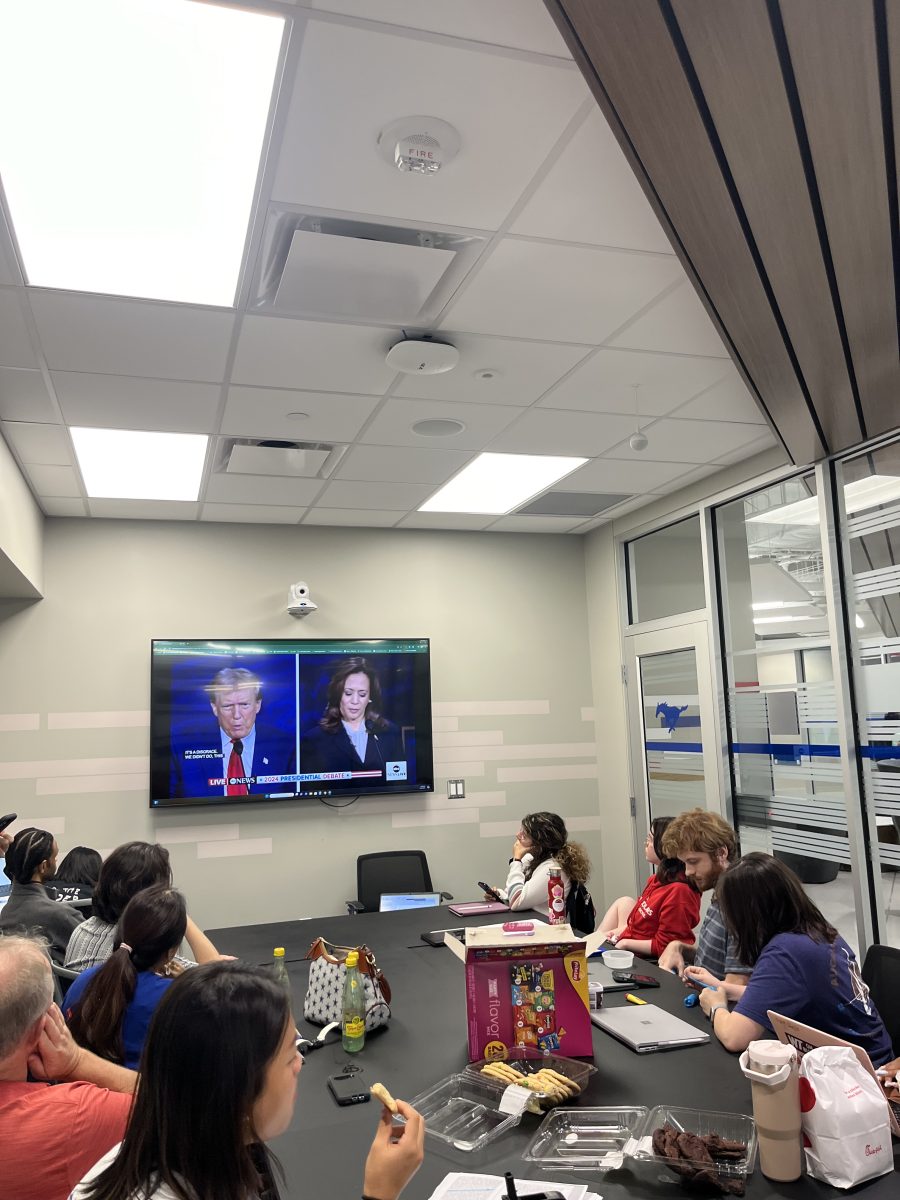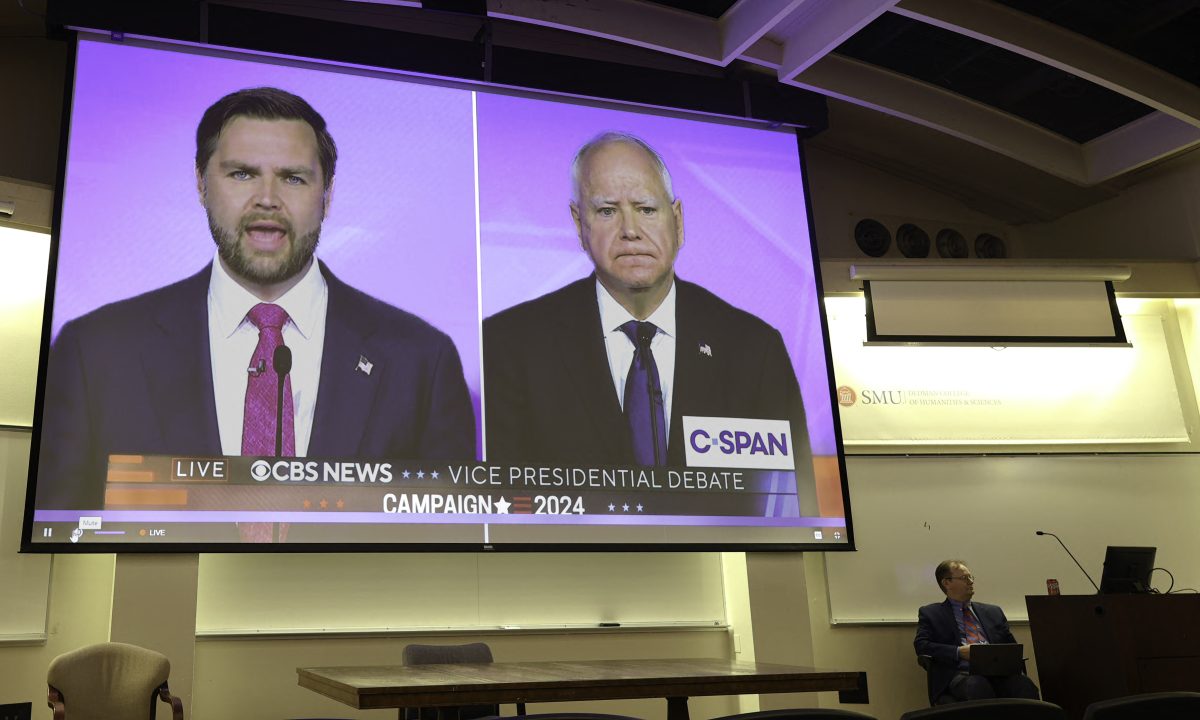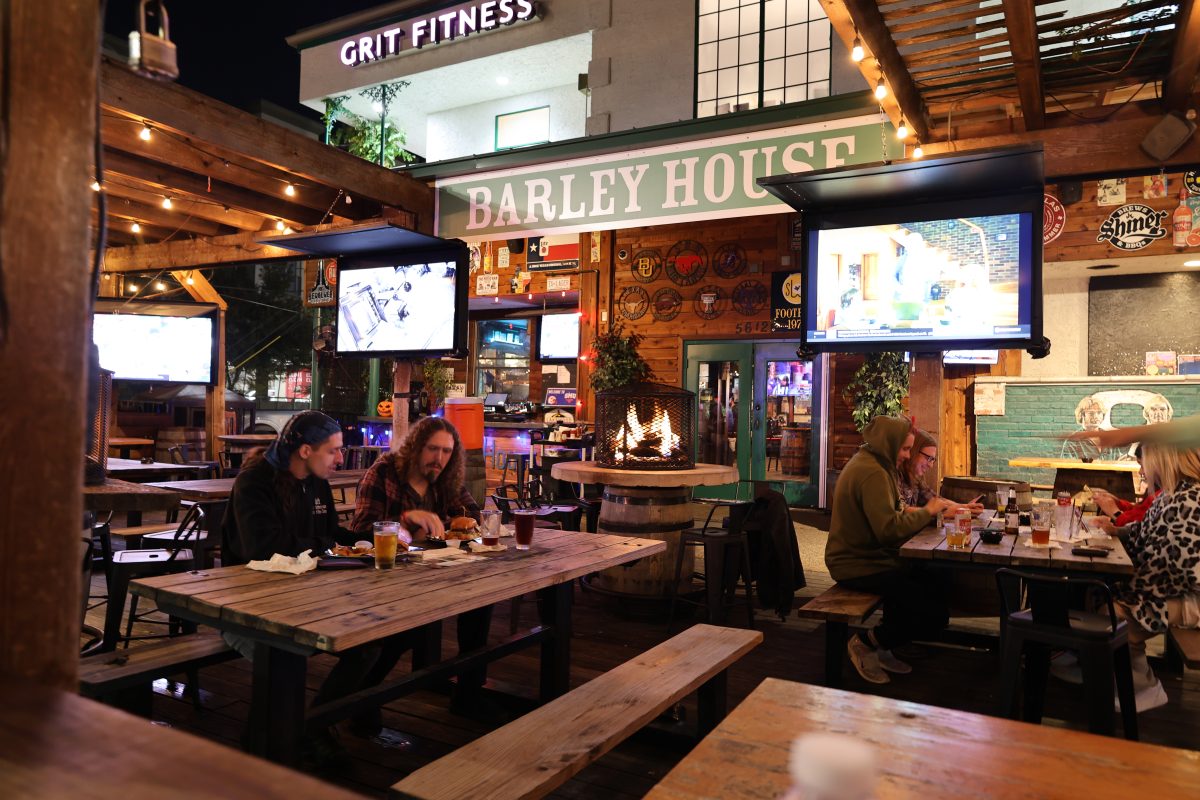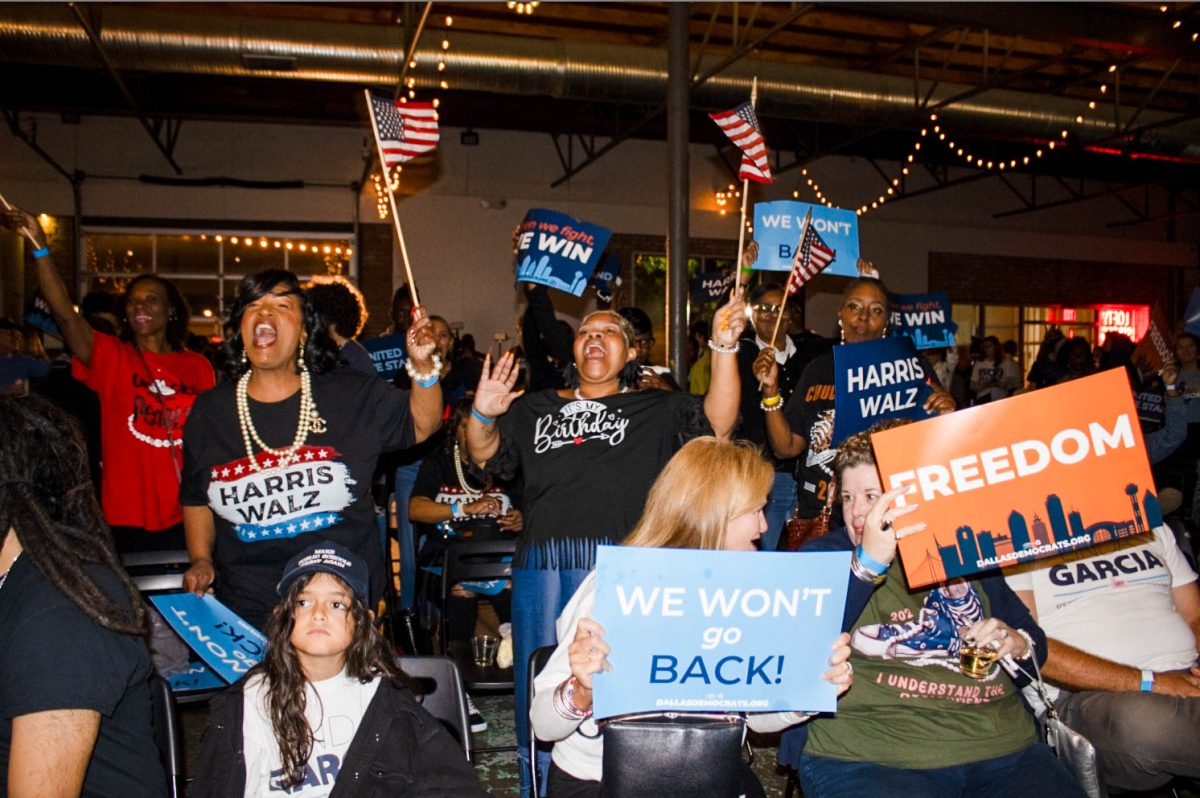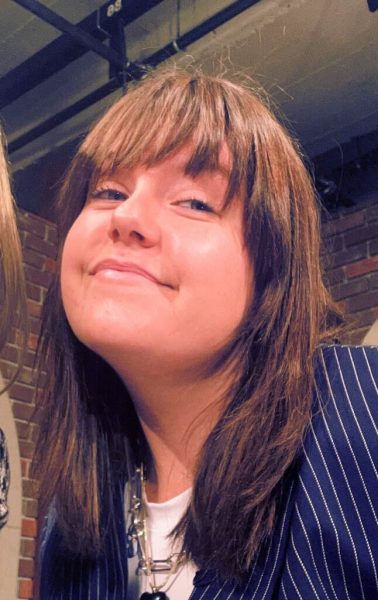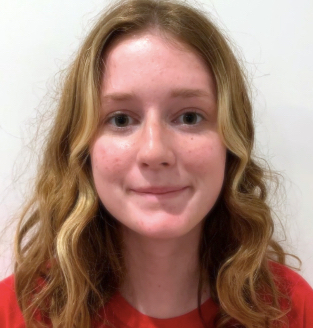Vice President Kamala Harris won over debate watchers in an ad hoc poll taken at a debate watch party on SMU’s campus. A conservative student organization, Young Americans for Freedom, collaborated with the speech and debate club to sponsor the watch party. Their poll, which was conducted following the debate, put Harris’ debate skills above Trump’s in a vote of 18-6.
On Tuesday, student organizations from both sides of the political spectrum hosted watch parties for the first debate matchup between former president Donald Trump and Vice President Kamala Harris. The conservative group hosted their event in Dallas Hall while the liberal student organization gathered in Hughes Trigg.
Attendees for the event sponsored by Young Americans for Freedom and the speech and debate club climbed up to the third floor of Dallas Hall and filed into McCord Auditorium. At the head of the expansive lecture hall stood Dr. Ben Voth. His red and blue tie and pristine stance revealed his speech and debate background before he even announced his title as director of speech and debate and professor of rhetoric.
As Dr. Voth surveyed the room, students spread themselves out in the auditorium seats, some sat alone while others gravitated toward familiar faces. Voth lectured a crowd of 36 in a room that typically fits class rosters in the hundreds, and noted the importance of debate night in numbers.
“One of the things I would impress upon you tonight is that there is hardly anything in television that has a bigger audience than what we will watch tonight,” Dr. Voth said. “A television show like Yellowstone would be very happy to have 10 million viewers, so to have 40, 50, 60, 70, 80 million people watching is a staggering number, and that’s why I think it’s foolish to say the debates don’t really matter.”
Across campus, in a cramped Hughes-Trigg meeting room, SMU’s College Democrats host their own watch party. Most people are crowded around the oval table, reaching over open textbooks and laptops for the grocery store cookies and bags of chips set haphazardly in the center. As the countdown clock on screen ticks towards zero, the buzz increases. The turnout is greater than expected and two girls sit cross legged on the floor, waving away students offering to give up their seats to them. Sam Rodick, president of the College Democrats, darts to greet each newcomer.
“We are trying to serve as a place for liberal, moderate, and progressive students to have a place to feel comfortable talking about politics on campus,” Rodick said.
As moderators David Muir and Linsey Davis introduced both candidates, both watch parties went silent with anticipation. Chuckles replaced the silence as Trump ignored Harris’ outstretched hand for a moment before finally approaching her for a handshake.
The two candidates traded barbs while uplifting their own track records and future White House plans. The group in Hughes-Trigg cackled when Harris insulted attendance at Trump rallies and laughed along with Harris when Trump accused Haitian immigrants of eating pets.
At the first commercial break, Rodick provided his opinions on the debate so far.
“His parroting of [claims against Haitian immigrants] is really harmful,” he said.
“I’ve also noted his reference to Viktor Orbán and thanking him for his praise,” Rodick continued. “Orban is a man who has been, over those last several years, deconstructing, piece by piece, Hungarian democracy, and I think it’s very telling that Trump looks up to the figure like that.”
During the commercial break in McCord Auditorium, fourth year PhD student, Uchechukwu Agbo, hoped the next portion of debate clarified Trump and Harris’ goals for their presidency.
“I’d hope to see them answer the questions they are asked,” Agbo said. “Quite a number of times, I saw them go off on a tangent and answer the questions they have in their minds instead of the questions they were asked, and that’s true for both Harris and Trump.”
As the debate continued, laughter remained the only reaction at both watch parties. Some watch party attendees texted with friends and family. Their fingers moving rapidly to keep up with the consistent jabs from the candidates. Other viewers whispered quips with others around them.
The candidates could not be further apart from another in their demeanor and opinion. The audiences watching them, however, showed more similarities than differences as both watch parties continued to respond to each off-color comment or annoyed look with laughter.
Dr. Voth, who has a method of scoring presidential debates, has no way of factoring in humor or an audience’s laughter. Though it doesn’t play into his scoring, Voth sees humor as a major strategy, and wrote an article discussing the impact of humor on the election between Al Gore and George W. Bush in 2000. He even thinks humor may aid Trump in this year’s election.
“Humor is a pretty important strategy, and the article actually dealt with how humor worked in election 2000 to cause President Bush to actually defeat Al Gore,” Voth said. “There was a Saturday Night Live skit that sort of reframed the entire perception of the first presidential debate, and I actually thought, and not many people said it, that Trump’s use of humor was actually very strategic, and I think maybe kind of the underrated part of what was happening.”
Many of the students in attendance at both on-campus watch parties will be casting their vote for the first time, and students like freshman Brett Trussell contend with how humor could factor into the decision he and his generation will make in November.
“I mean, all the funny moments that made you laugh, which were definitely more in Trump’s favor, but kind of on the flip side of that, I think you also had where he said several very ridiculous things that are just so out there that any reasonable person is going to be, ‘Can I really consciously vote for this person to be the next American president?’” Trussell said.
Students and professors weren’t the only attendees on Tuesday. Thelma and Mike Woodruff, a married couple who are members at the Dedman Center for Lifetime Sports, decided to attend after Thelma saw a flier for the event in Dedman.
Mike, 61-years-old, wanted to watch the debate with the youngest generation of voters. He sees this young generation as a critical part of the democratic process, especially as he sees his own generation close off from other opinions.
“When people hit forty or fifty, a lot of times they get jaded and they have these kinds of preconceived notions, and they will not listen to a difference of opinion,” Woodruff said. “That’s why I like to be around y’all’s age group. It’s important that y’all are here.”



